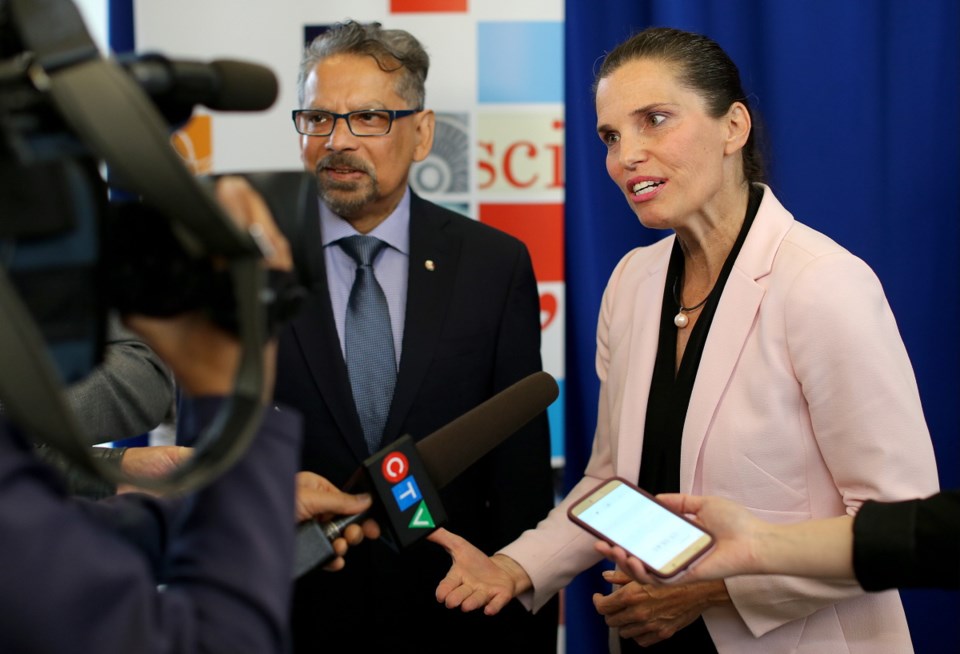When federal Science Minister Kirsty Duncan announced $515 million for science research grants on Friday — including $9.5 million destined for UVic — it was like a return to the fields of inquiry where she got her start.
Duncan was at the University of Victoria to announce the funding, which supports the Natural Sciences and Engineering Research Council and its Discovery Grants. Of that money, $7.8 million will support 48 researchers at UVic, while $1.7 million will support scholarships, fellowships and supplements and the university.
“To all of you, I can’t wait to hear of the results of your research,” Duncan said.
She is well aware of the possibilities — and the pitfalls — when it comes to building support and finances for scientific research.
In the early 1990s, Duncan, a medical geographer, devised an ambitious plan to locate remnants of the Spanish flu virus that killed as many as 40 million people at the end the First World War.
Duncan decided to exhume bodies of flu-killed miners in the Norwegian Arctic in the hope the virus had been preserved in the permafrost.
While her efforts were unsuccessful, Duncan chronicled her efforts in Hunting the 1918 Flu. In the book, she writes of assembling a team, lining up money and conducting the delicate diplomacy required to gain the support of the Norwegian villagers whose graveyard she would open.
She wrote of the often-bitter politics of science and the obstacles it can hold for young scientists, especially women.
“I know this world [of science and research],” she said Friday, “and I hope to make it better for researchers.”
Duncan pointed to work by UVic associate professor Stephanie Willerth, in the department of medical engineering, as an example of innovative research being supported.
Willerth, who holds the Canada Research Chair in Biomedical Engineering, will receive a grant of $120,000. Her research involves stem cells and how they can be used to engineer tissue that can be transplanted into people to treat diseases of the nervous system such as Alzheimer’s disease and Parkinson’s disease, or to repair spinal cord damage.
Willerth lauded the way Discovery Grants are awarded to scientists for basic research as opposed to responding to industry or business demands.
“It’s so important to have this sort of funding because curiosity-driven research often leads to the most innovative solutions,” she said in an interview.
“Like being able to bio-print neural tissues — when I started my work, that’s not what we were thinking about.”



